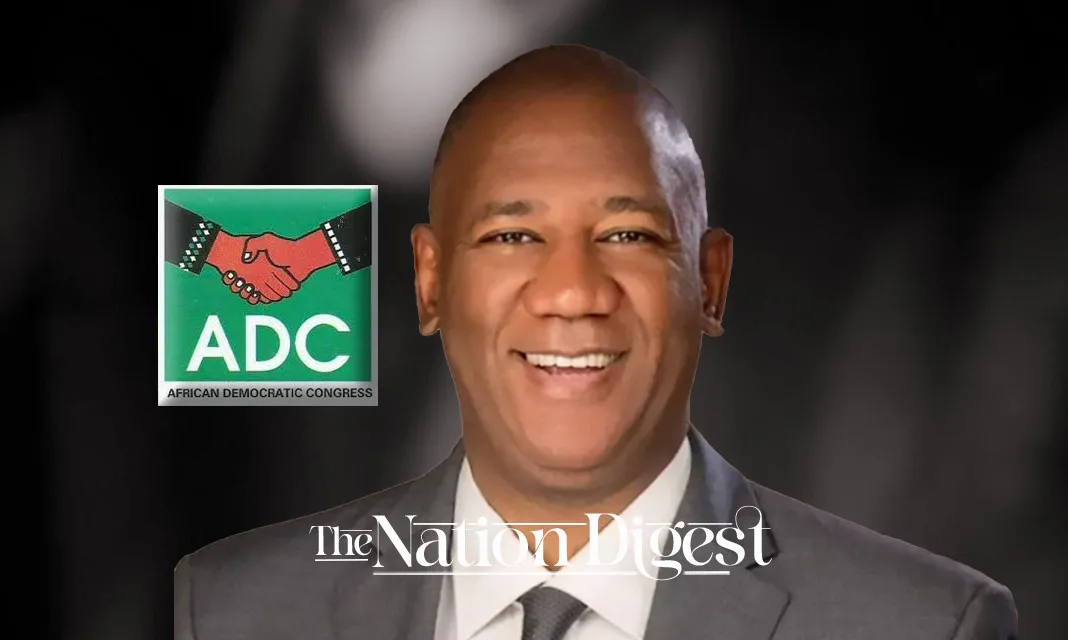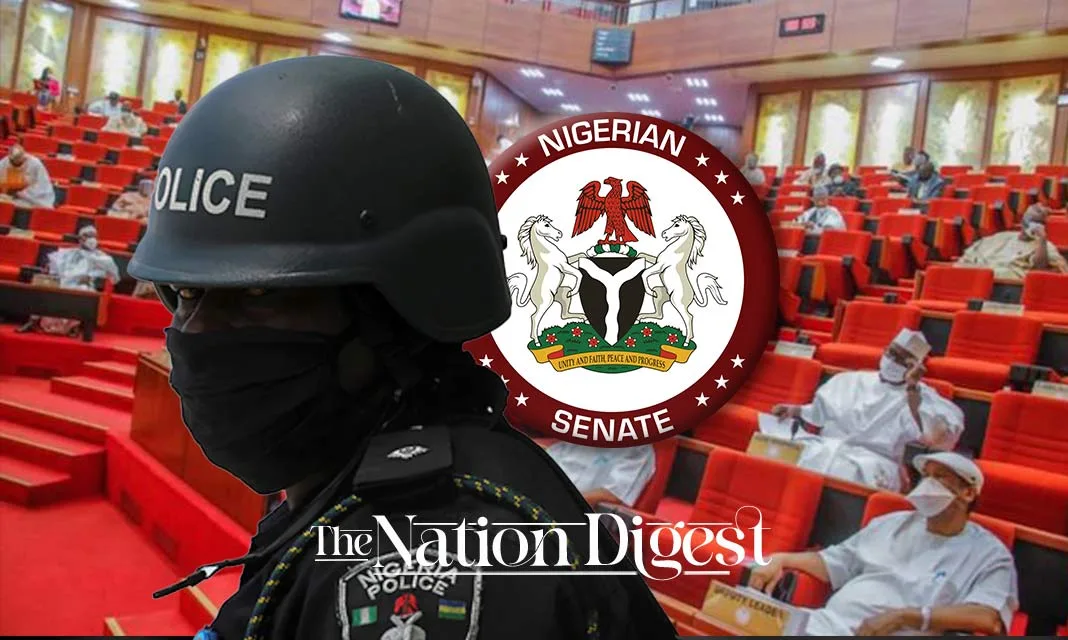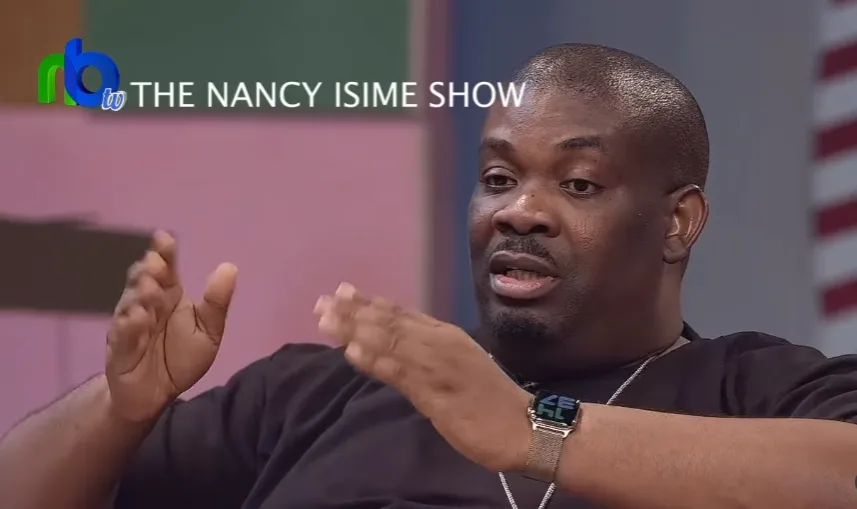Yusuf Datti Baba-Ahmed isn’t one to shy away from hard truths, the former vice-presidential candidate recently dropped a political bombshell that has sparked serious conversations: the ADC opposition coalition, meant to challenge President Bola Tinubu in 2027, is looking more like a crowded ambition market than a focused political force.
It’s a warning many might want to ignore, but they shouldn’t.
Ambitions Everywhere, Strategy Nowhere
Speaking on Trust TV, Datti Baba-Ahmed made a brutally honest observation. According to him, the coalition, formally riding under the African Democratic Congress (ADC) banner is filled with presidential hopefuls. That wouldn’t be a problem if these ambitions were being managed with discipline and foresight. But as Datti sees it, they’re not.
“Ambitions have to be reduced and have to be managed carefully for it to stand the test of time in the history of Nigeria’s politics,” he said.
And here lies the core of the issue: the flaws of the ADC coalition are not rooted in ideology or lack of public support, but in an overload of self-interest.
Datti pointed out something striking. In the past, opposition forces had people like Bola Tinubu who knew when to pause their own ambitions for the bigger picture. Tinubu gave Atiku the platform in 2007 and supported Buhari in 2015. That type of sacrifice, Datti insists, is missing in today’s opposition setup.
What the flaws of the ADC coalition reveal is that everyone wants to lead, but few are willing to play the long game.
“If you do business as usual against a sitting government like Tinubu’s, the person would not win,” Datti warned. “To achieve an impossible feat, one truly needs an impossible strategy.”
His message is clear: the ADC can’t afford to play checkers while Tinubu plays chess.
Familiar Faces, Familiar Problems
The ADC-led coalition is star-studded, there’s no denying that. Former Vice President Atiku Abubakar, Labour Party’s Peter Obi, ex-Minister Rotimi Amaechi, former Kaduna Governor Nasir El-Rufai, and more have joined hands under this banner. On paper, it looks powerful, but just beneath the surface, there are problems.
Atiku is widely seen as the coalition’s power center, yet his continued ambition causes ripples within PDP and raises trust issues inside the coalition. Obi has offered to run for just one term to soothe zoning worries, but Labour Party is accusing him of double loyalty. Amaechi and El-Rufai, both from the APC, now oppose the same party they helped build.
These cross-party alliances reflect the kind of political desperation that fuels the flaws of the ADC coalition. It’s not wrong to unite, but when unity is built on shared grudges instead of shared vision, things get messy.
Also Read: Baba-Ahmed Rejects Coalition, Urges New Political Faces
The 2027 Question: Who Will Step Aside?
Datti didn’t stop at diagnosis; he offered a remedy too. The coalition needs to present a candidate the ruling APC cannot predict—someone without years of political baggage and known weak points.
“If you bring Atiku, they know how to work against Atiku,” Datti said, matter-of-factly. “You need that candidate they can’t understand, they don’t know where to catch.”
His advice? Go for the unexpected. Go for a candidate that forces the ruling party to rethink its entire playbook. That might be Obi. It might be someone else. But it certainly won’t be someone the APC has defeated before.
This challenge goes to the heart of the flaws of the ADC coalition, can they put ego aside for strategy?
Intra-Party Chaos and Public Reactions
As if internal ambition wasn’t enough, the coalition also faces tension from the parties its members left behind or claim they haven’t left. The PDP is uneasy about Atiku and Tambuwal’s coalition involvement. Labour Party gave Obi an ultimatum. The APC, meanwhile, has mocked the alliance as a circus of disgruntled politicians.
FCT Minister Nyesom Wike called it “a gang of failed and expired politicians.”
Presidential aide Sunday Dare called the ADC leaders “political desperados.”
Even the ADC’s 2023 presidential candidate, Dumebi Kachikwu, slammed the coalition takeover as “fraudulent” and “a hijack.” If that doesn’t highlight the flaws of the ADC coalition, what will?
What Nigerians Are Saying
In homes, offices, and online spaces, Nigerians are watching the ADC project with cautious optimism—and a good dose of skepticism.
One commentator on X (formerly Twitter) wrote:
“How can you claim to offer change when your leaders are the same people who’ve been in every party since 1999?”
Another added:
“I don’t care who wins in 2027. Just give us someone who isn’t just chasing power.”
These sentiments reflect the growing public impatience with recycled faces and recycled tactics.
The Path Forward: Ego or Strategy?
So what next? For all its baggage, the ADC coalition still represents the strongest attempt so far to form a united front against APC dominance. But if its leaders don’t heed Datti’s warning, they’ll end up sabotaging themselves.
To fix the flaws of the ADC coalition, they must decide:
- Is this a real movement or just a temporary alliance of convenience?
- Are they ready to rally around one candidate, no matter who that is?
- Can they build consensus on zoning, tenure, and campaign strategy without another round of bitter fights?
Nigerians are tired of drama. They want results.What Do You Think?
Yusuf Datti Baba-Ahmed has done what many won’t, he’s told uncomfortable truths. The ADC coalition can either take his words seriously and get strategic, or it can keep pretending that ambition and unity are the same thing.
The flaws of the ADC coalition won’t fix themselves. They require humility, honesty, and hard choices.
But now, over to you:
Do you think the ADC coalition can overcome its internal ambition war and present a serious challenge in 2027? Or is it doomed to be another failed alliance?
We’d love to hear what you think. Let’s talk.




